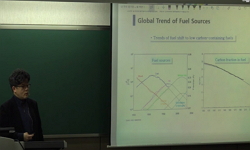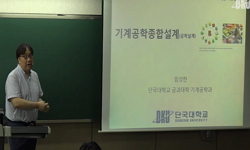2,5-Furandicarboxylic acid (FDCA) has attracted considerable attention as a building block for renewable polymers, as it can substitute conventional petroleum-derived terephthalic acid as a monomer for the synthesis of polyethylene terephthalate. In t...
http://chineseinput.net/에서 pinyin(병음)방식으로 중국어를 변환할 수 있습니다.
변환된 중국어를 복사하여 사용하시면 됩니다.
- 中文 을 입력하시려면 zhongwen을 입력하시고 space를누르시면됩니다.
- 北京 을 입력하시려면 beijing을 입력하시고 space를 누르시면 됩니다.
Production of Bioplastics: Process Synthesis and Evaluation = Production of Bioplastics: Process Synthesis and Evaluation
한글로보기https://www.riss.kr/link?id=A107284465
- 저자
- 발행기관
- 학술지명
- 권호사항
-
발행연도
2020
-
작성언어
-
- 주제어
-
KDC
500
-
자료형태
학술저널
-
수록면
158-158(1쪽)
- 제공처
-
0
상세조회 -
0
다운로드
부가정보
다국어 초록 (Multilingual Abstract)
2,5-Furandicarboxylic acid (FDCA) has attracted considerable attention as a building block for renewable polymers, as it can substitute conventional petroleum-derived terephthalic acid as a monomer for the synthesis of polyethylene terephthalate. In this study, we develop a new process for the co-production of FDCA, furfural, and activated carbon from lignocellulosic biomass to make the production of renewable plastics cost-competitive by generating high-value chemicals at the same time. Pinch analysis was conducted to form a heat exchanger network for reducing utility requirements. We conducted an uncertainty analysis using the Monte-Carlo simulation method for the minimum selling price of FDCA to quantify the risks of the proposed process and provide a more realistic estimation to decision makers. Furthermore, the sustainability of the proposed process was demonstrated via life-cycle assessment.
동일학술지(권/호) 다른 논문
-
압축 압력 및 흑연 조성에 따른 금속수소화물-흑연 성형체의 축 방향과 반지름 방향 열전도도 평가
- 한국공업화학회
- 이평종
- 2020
-
한국수력원자력 KOLAS인정시험기관 전환평가 과정 소개
- 한국공업화학회
- 김희선
- 2020
-
In silico method of endocrine-disrupting chemicals (EDCs) prediction in chemical space
- 한국공업화학회
- 서명원
- 2020
-
- 한국공업화학회
- 양준일
- 2020




 KISS
KISS






